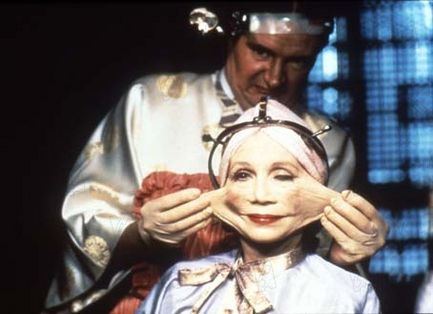If a Hollywood producer is looking for a niche market to exploit, I would suggest he or she target America. In a globalized world, the U.S. is but another player on the stage, and films that target a specifically American sensibility aren’t really the point anymore. Want to make a movie about baseball or Boise? Not so likely now.
Terry Gilliam has pretty much had it with Hollywood. While the visionary director never had a niche geographically, he was the director who made the mid-budget film that was dazzling and adventurous and often brilliant, though sometimes it fell apart. From an interview the filmmaker did with Andrew O’Hehir at Salon:
“Question:
Well, and then there’s your relationship with the film industry, which was maybe never so terribly warm and fuzzy. Is that that you have changed or that the nature of the mainstream film industry has changed? Or have the two of you just sort of drifted further apart?
Terry Gilliam:
I think we’ve both changed and probably drifted apart for that reason, even more. In Hollywood, at least when I was making films there, there were people in the studios that actually had personalities. You could distinguish one from the other. And now, I don’t see that at all. It’s just gray, frightened people holding on without any sense of “let’s try something here, let’s do something different.” But to be fair, I haven’t been talking to anybody from the studios in the last few years. But the films that Hollywood is making now, it’s clear what’s going on. The big tent-pole pictures are just like the last tent-pole pictures. Hopefully one of them will work and keep the studio going. It’s become … it’s a reflection of the real world, where the rich get richer and the poor get poorer and the middle class get squeezed out completely. So the kind of films I make need more money than the very simple films. Hollywood doesn’t deal with those budgets anymore; they don’t exist.
Question:
You can’t make the film in your house for $50,000. But they’re also not going to give you $100 million. You’re in a mid-budget area they don’t like, right?
Terry Gilliam:
Yeah. It’s terrible. I’m not alone in the mid-budget area that’s being pushed out of work. It’s a great sadness because there are many small films that can be wonderful, or you get huge $100 million-plus budgets and they’re all the same film, basically, or very similar. It’s just not as interesting as it used to be. The choice out there is less interesting. The real problem now is that when you make a small film, to get the money to promote it is almost impossible. You can’t complete with a $70-80 million budget the studios have. So it becomes less and less interesting. That’s why, in a sense, the most interesting work at the moment, as any creative person, knows is coming out of television in America now, not coming out of the studios.
Question:
The studios have two niches, and the problem is that you don’t fit in either one of them. You’re not going to do a Transformers movie for $250 million. And they think you’re not the right person to do the movie that maybe costs $40 million and is aimed at the Oscars, or is a prestige literary adaptation or something. They don’t trust you with those, right?
Terry Gilliam:
I wouldn’t trust me with them either. [Laughs.] I just want to do what I do. And I don’t even get scripts from Hollywood. I don’t even ask for scripts anymore because I kind of know what they’re going to be. They don’t interest me, so I’ve chosen to wander in the wilderness for another 40 years. We’ll see how it goes.”

